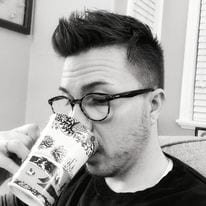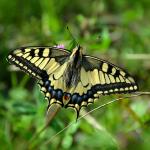July 6th is my birthday and I want to talk about my death. Okay, not just my own death but your death too! Most of my adventures as a practicing Pagan have focused on the present, this very existence. We do a grand job of celebrating life and enveloping our senses with stimuli. After all, why wouldn’t we want to celebrate life and all of its pleasures? It isn’t my desire to deter you from reading further. No, instead I want to talk about this life and why it is important to also talk about what happens when our form is no longer alive.
I don’t mean to sound macabre by discussing death. In fact, death is by far my largest fear. However, you know what they say about our fears: we have to face them head on. Beyond trying to feign a brave persona, I want to help break down the taboo around death. It has been extremely confusing to practice a religion that has little to say about the hereafter. I’m certain this was done on purpose and to point out that none of us truly know what happens until we arrive at our final breath.
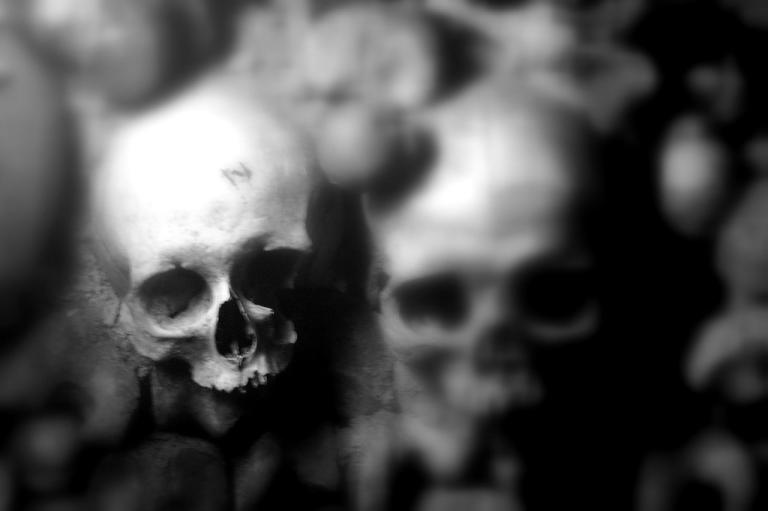
Looking At Fear
Looking into my largest fear is no easy task. Most of you should know that I have taken a large dose of CBD to even write this article. However, it is an article that needed to be written. Not because there aren’t authors who haven’t attempted this before but because my voice and my views might reach you. I don’t think that I am a rare gem but I know that I am brash when needed and vulnerable with my words.
My fear of death wasn’t ignited at a young age from viewing a deceased person. My first funeral was actually relatively calm and made perfect sense to my younger self. It was the passing of my best friend (he was also my cousin) and the impact of his surviving family that generated my fear. I remember very clearly being picked up from a summer program and witnessing my cousin’s sister in a state of complete shock. The funeral was equally difficult for everyone in the room. How do you cope with the loss of a 10-year-old child and friend? How do you look upon him with the dent in his skull from where the car hit him and feel like he is in a better place?
Family really tried their best to guide me through grief. I would visit a therapist three times a week and spoke with a priest fairly often. There was and is something about Christian cosmology that did not honor death, to me. For me, it did not make sense that we would say to each other, “they are in a better place”. No, I would argue, the better place was growing up with me and being allowed a childhood! The other confusing aspect was the Christian idea of a soul. How did we continue on and in what form? The answers were all very sugar-coated, sweet, and felt insincere.
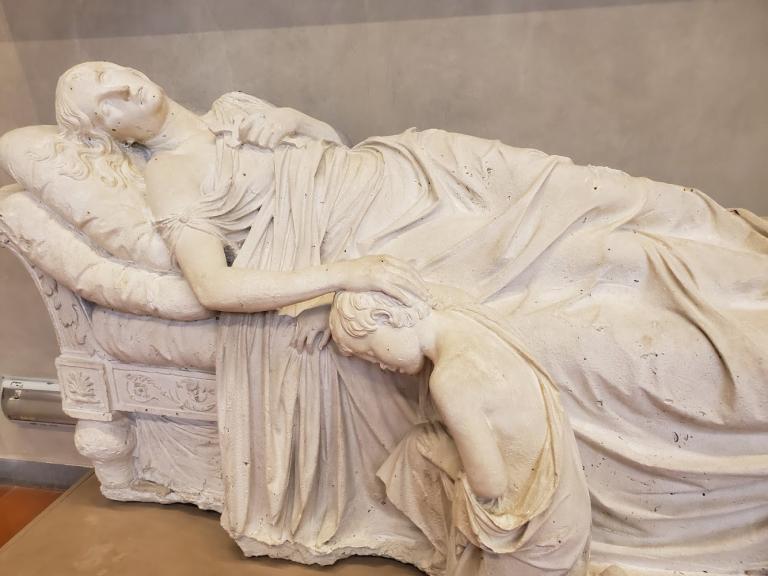
As I transitioned into my current religion I noticed there weren’t a lot of details around death. Sometimes that confused me and other times I felt empty when contemplating the topic. I thought to myself in some of my darkest hours that it would have been nice to have a better idea of what happens when I die. Death is something that I have come very close to on a few occasions and yet I survived. The survival has led me to seek out something that feels like a better answer for my fear. Something less assumed and more solid in foundation.
Where Do We Go?
Where do we go when we die and what happens to us? This question is obviously loaded and something I won’t be able to completely answer but let me try anyway. I’m going to start with what happens to us, as this is what I have a better understanding of. After our bodies have lost their senses and we no longer retain consciousness in this form we begin rapid decomposing. Did you just cringe? If so, don’t stop reading, I promise it gets easier.
I mentioned that my practice doesn’t really cover what happens after we die, right? I’ve researched Wicca, Druidry, and Heathenry in their modern context and there isn’t really a unified belief to be found. Most modern Pagan religions leave the topic extremely vague and allow adherents to carry a personal credence. It wasn’t until I studied Buddhism that I found philosophies that made me think, “AHA!” Buddhism has thousands of years of canon, ideas, and teachings around the topic of death. A lot of these topics have been adopted by other religions or absorbed as they coexisted with other philosophies.
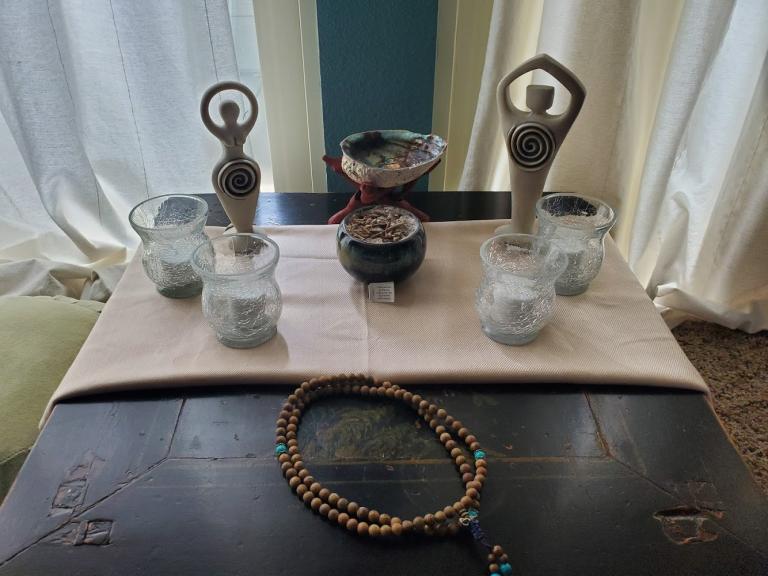
Most Westerners assume that Buddhist teachings of rebirth are relatively straightforward. You would be very wrong to make this assumption! Several schools of Buddhism believe that our rebirth is impacted by a cosmic force called Kamma (Karma). While other schools believe that consciousness is reborn without hindrances. The AHA! Moment I had arose due to my comparison between the Tibetan bardo states and the Welsh Mabinogion.
In the Mabinogian the Bard Taliesin transforms through many states. He doesn’t describe a human form but instead we are given the following quote:
“I am wind on sea.
I am a storm wave.
I am ocean’s roar.
I am a seven-antlered stag.
I am a hawk on a cliff.
I am a dewdrop.
I am fair body.
I am a boar for valor.
I am a salmon in a pool.
I am a lake on a plain.
I am a word of their poetic art.
I am a word of skill”
This profoundly shook my world and I instantly realized that Taliesin describes our connection to every living thing (if you don’t instantly begin hearing Circle of Life, I am also shocked!). The teachings found in this Bardic tale are truly profound!
Circling back to my point, where do we go when we die? We go where we have already been and where we have never been. We become part of the Earth, the sky, the sea, the plants, and we carry on in photos, art, word, and skills. You are making the footprints for your life after death right now! I hope that just blew your mind.
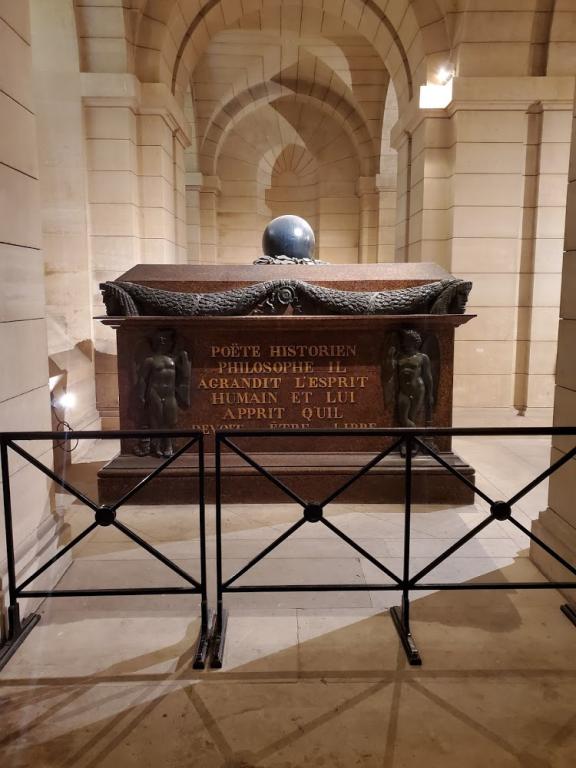
Differing Ideas
As we can see from my statement above, we are creating our life after death now. I sincerely believe that it is this reason that we do not have stronger teachings about life after death. What we do now is our chance to make an impact and that impact is part of us that lives on. All of that sounds so cliché and I realize it.
However, it is important that we examine our beliefs around the here and now. We revere the Earth because we return to it. I personally do not want to mingle alongside a non-decomposing diaper or someone’s half-eaten bag of chips. I want my impact on the Earth to create a positive embrace for the return of my body. This is why efforts in recycling and climate change are important to me.
Our views about what happens after death may differ and that is wonderful. It is likely that our views on life are also different and that is also wonderful. There aren’t going to be many Pagans who feel the same about the process of death and the hereafter. Earlier I mentioned a large vagueness surrounding this topic and that wasn’t completely fair of me to say. There are some inklings of life-after-death in writings found in Wicca, Heathenry, branches of Celtic society, and many Reconstructionist groups.
Classical teachings give us myths about the Elysian Fields, Summerland, Valhalla, Fólkvangr, and Tír na nÓg. Modern teachings give us ethereal teachings, atheism, and eclectic ideas of what comes after death. None of these are wrong, or at least can be proven wrong at this time. Because none of these theories can be proven wrong it is valuable to find something that suits your needs. I personally try to look for the threads that connect ideas and come up with something fairly broad.
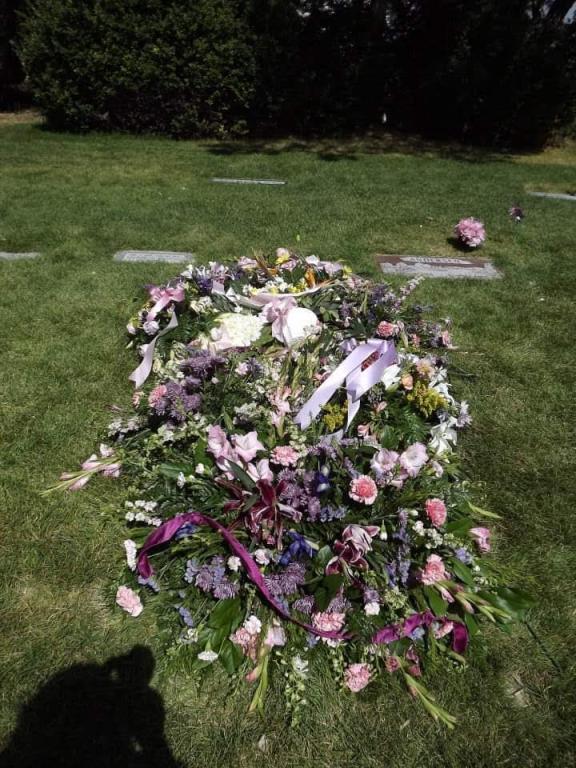
Perhaps my favorite description of what happens after death came from author Kristoffer Hughes. In his book, As the Last Leaf Falls, he metaphorically describes the afterlife as entering an airport. One passes through gates that others cannot cross, you see others but rarely interact with them, and everyone goes off to a destination. This really speaks to me and allows for theories like the Summerland to be accepted as plausible. Plausibility is the gateway to understanding other points of view and when it comes to death almost anything is plausible.
Circling Back to Planning
Let’s circle back to you for a moment. How do you want to die? I get it, most of us don’t really have any say in how this life ends. For a moment try to think about this though. Do you want to be at home? Do you want family around? Is death something that you are willing to face without fear? What about the details after you die?
The above questions are all items we have to come to terms with at some point. Here, on my birthday, I am having a conversation about these very items. I’d like to share with you my answers to some of these questions and how I want to handle death in an ideal situation.
- How do I want to die? Ideally, at an old age and having accomplished several goals. If not, then I would like to die as painlessly as possible.
- Where would I die? I don’t have an opinion about the where I die. I am comfortable at home, in a car, in a plane, or at hospital. Though I would feel comforted having a loved one near me as I take my last breath.
- Do I fear death? No, I don’t fear death but I fear what happens after death. Not necessarily about my physical body but I fear the idea of nothingness.
As for the details about what will happen to me after I leave this form, I am biased but think my idea is pretty amazing. My wishes are to be cremated, placed into a biodegradable urn, and to be planted with a sturdy pine sapling. I want to be placed in the mountains with a simple engraved boulder. It is important to me that I find a minimal-impact approach to my funeral. It is also a romantic idea to imagine part of me would continue on in the form of the pine tree, even if it is only on a molecular level.
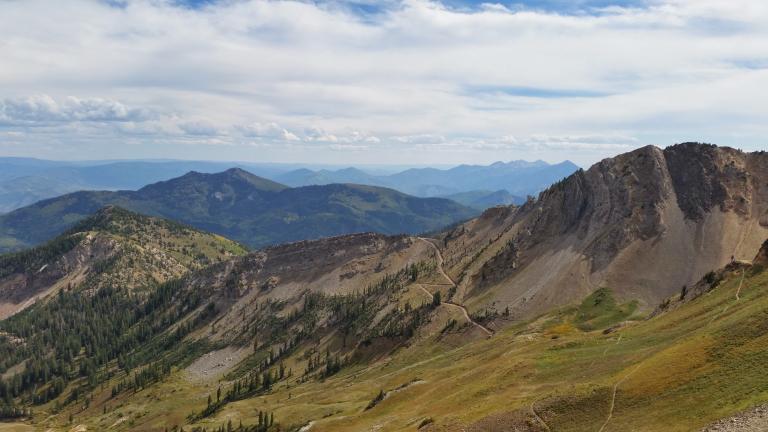
Moreover, it is profoundly important that my funeral is handled in a way that reflects my beliefs. I am a Pagan in life and that needs to reflect in my death as well. Those closest to me are aware of my wishes and I have even created an end of life disclosure with my healthcare provider. Some of this may seem unnecessary for someone of my age but I don’t think anyone can deny the reality of our unknown mortality.
Ending Thoughts
Examining our own deaths can be frightening and that is perfectly fine. Normalizing those fears and having an open dialogue about our wishes can aid us in coping with the inevitable. As mentioned above, the unknown details about the hereafter is my largest fear. However, I try my best to communicate my wishes to those I am closest with and to open conversation around a journey we all will share.
Every living creature, plant, planet, and indeed solar system will eventually shine a final light. We do not know what happens beyond this and if rebirth, renewal, or reincarnation await us. Know this, the voyage will not be lonely and take comfort in the observation of the cycles of life. As we see them here and now, life always finds a way to continue in some way. It is up to each of us to determine how we interpret this message and find solace in our beliefs.
My recommendation from here on out is to ensure each of you communicate your wishes. Do not let other people determine your final acts in this world. Be sure that your providers know what your wishes are and that your funerary plans are openly discussed. Even if this is a fear of yours, take a moment to compose, and then reach out to those who will support your wishes. Be aware that your wishes may change throughout your life and it is important to keep this dialogue open and current. Additionally, read about Pagan perspectives on death. Below are phenomenal references for beginning your exploration.
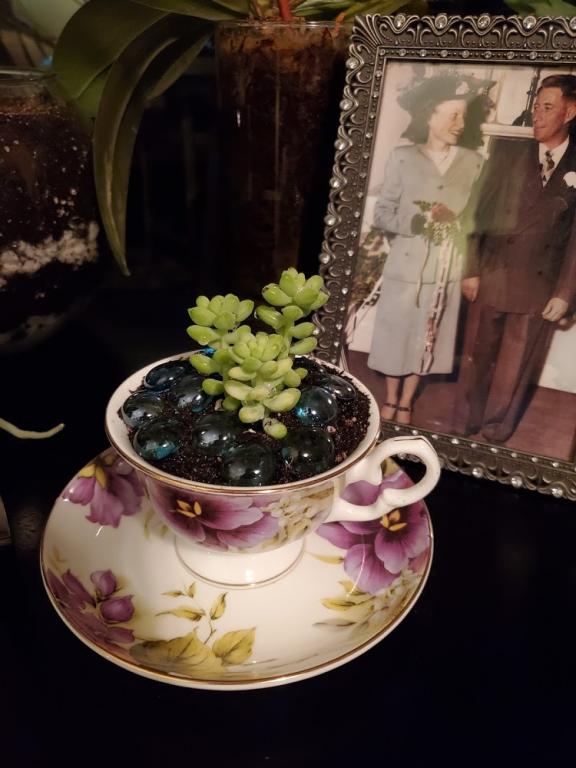
- Badass Ancestors by Patti Wigington: This book helped broaden my view on various types of ancestors and how I develop my celebration for each type of ancestor I work with. I recommend this book because it helps us find unique ways that we can connect to ancestors and how we will become ancestors as well.
- As the Last Leaf Falls by Kristoffer Hughes: I cannot rave enough about this book. The author has a very unique perspective of death, as he is a death services professional in Wales. Having the hands-on experience in the world of the living and in the dead is exactly why this book is so special. He shares personal stories that profoundly changed my perception of death. I recommend this book for anyone who has fears around death or anyone who would like to expand on Pagan perspectives around death.
- The Pagan Book of Living and Dying by Starhawk: A literary masterpiece that collects essays, prayers, and songs from various living Pagan traditions. This book includes pagan discussions primed towards midwifing your own passage. It is practical, comforting, and opened my eyes to how other Pagans grieve.


